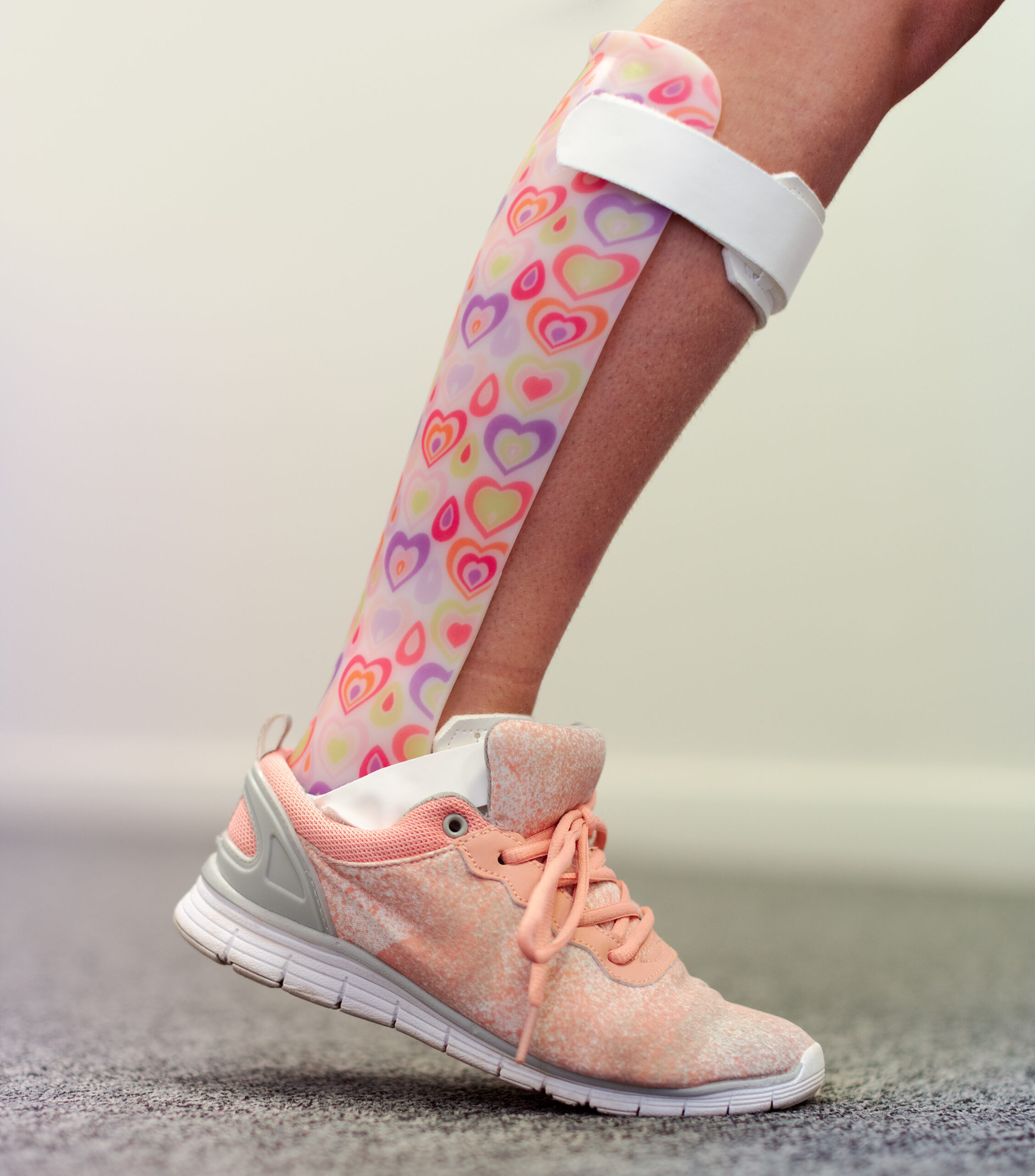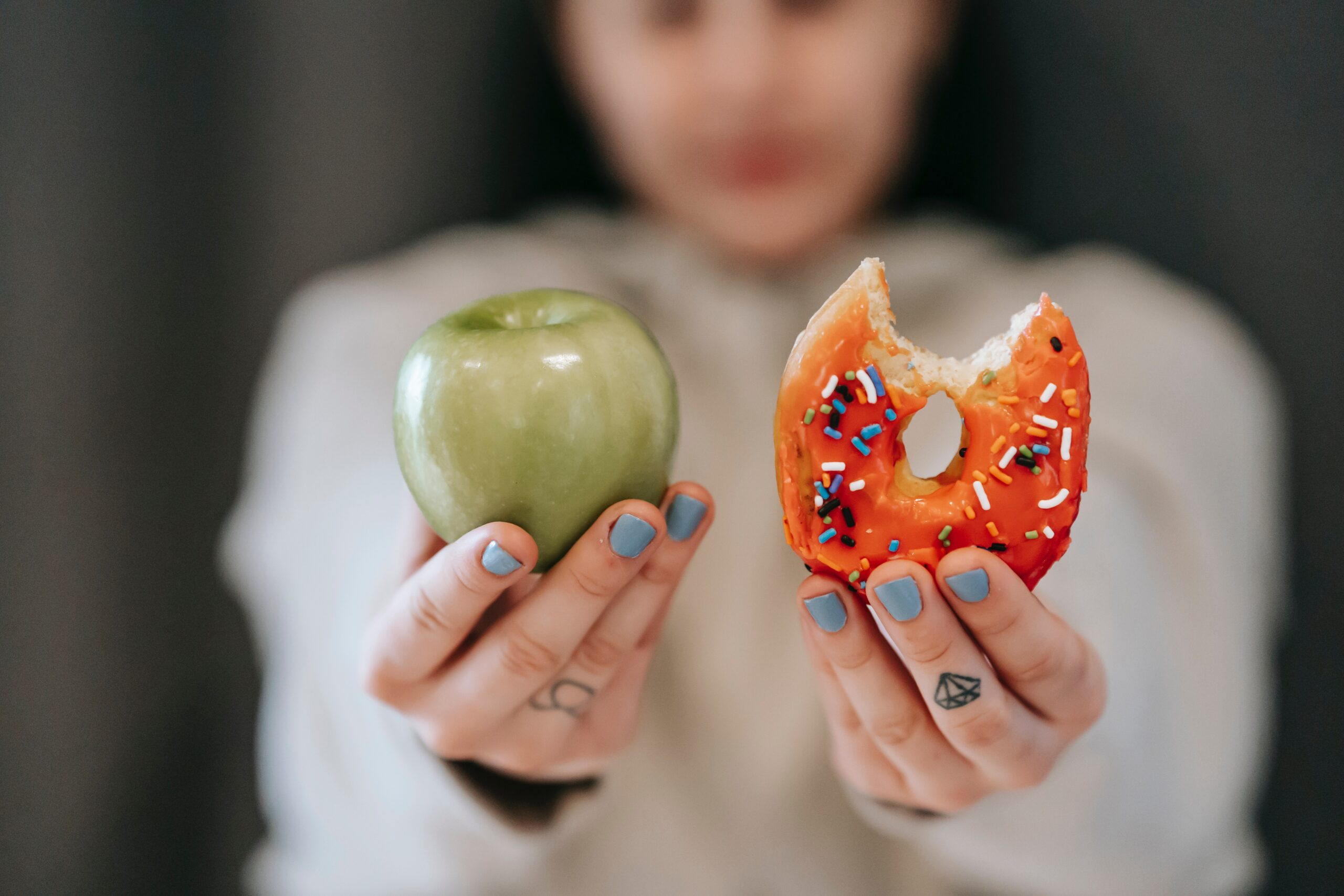Many of us have been on a weight loss journey of some kind at some point in our lives. There are also many of us who are on one as we speak (myself included). Whether the goal was to lose 10 lbs, 50 lbs, or 150 lbs, there are so many of us working hard to get to a specific goal weight. You can see the number, can’t you? You know exactly what you want that scale to say. Some people are using any crash diet you can think of to lose weight, while others are taking the slow and steady approach. Whatever method you’re using (be it a proper one or not..), you are working hard and making sacrifices all in an effort to see that magic goal weight number appear on the scale.
Time passes. Countless hours have been spent in the gym or outside running trying to burn some extra calories. Many pieces of pizza and cupcakes have heard the word “no” and been sacrificed all for the sake of this magic number. And then, one day, you step on the scale and there it is. You weigh yourself again to make sure it wasn’t a fluke, but when you look down, you see that glorious goal weight number staring back at you. You feel victorious, sexy, strong, and like nothing can bring you down. You’ve made it to your goal weight. The wait is over. The diet is over. Right??
Wrong…
Life After Goal Weight
That mindset is the reason why so many dieters reach their goal with ease, but can’t seem to maintain the weight loss they’ve worked so hard for. The reality of weight loss is this: The journey to lifetime weight loss (and maintenance) starts AFTER you hit your goal weight. That’s right my friends: seeing that magic number on the scale isn’t the end of the road, but it’s only the beginning, and the rest of the journey is the hardest part.
If you’re on your first journey to your goal weight, this might come as a bit of a shock to you, but those of us who are on our second or third trip down this road know it’s the truth. After all, if it wasn’t, we wouldn’t be on our next attempt at hitting goal; we’d still be there.
Back when I led Weight Watchers meetings, I had an older (probably mid-late 70’s) woman come in and sit down after signing up for the program yet again. She had a bit of a grumpy attitude about the fact she was there, but she was definitely not afraid to speak up at the meeting. After a few minutes of discussion between myself and some other members at the meeting she raises her hand to join in:
Her: This is my third time coming back to Weight Watchers.
Me: Well I’m so glad you’re back. Don’t worry, you are definitely not the only person who has come back a time or two after gaining their weight back. You’re in good company.
Her: How can you tell me that this plan actually works if people have to keep coming back after losing weight?
Me: (after thinking for a second) …Well, think about it. After you stopped going to Weight Watchers meetings did you continue to eat like you did while you were on the plan, or did you go back to eating the way that landed you in this room the first time?
I’ll bet you can guess what her answer was. The downfall of people who have had successful weight loss on a diet is because they use the term diet. People often think of the word “diet” as a temporary way of eating that allows them to lose weight. What happens when the “diet” is over is that people go back to the way they ate before said diet, which just makes them put the weight they worked so hard to lose right back on.
If your goal is maintaining weight loss for life, you cannot DIET. You have to think of your new way of eating as a LIFESTYLE!
There is no quick fix for weight loss. Crash diet all you want, but as soon as you start to eat normally again, that weight will just come creeping back on. If you want to keep the weight off you have to find a way of eating that is sustainable for the rest of your life. This means that if you love cupcakes or pizza, you can (and should) find a way to work them into your life without sabotaging the rest of your efforts. A diet that can keep you at your goal weight does not involve excessive deprivation (which can easily cause binges), just self-control. Success will be found when you eat well most of the time, but also when you also allow yourself to have that special food that you won’t find in any diet plan.
This is why I love Weight Watchers. If I want to spend my weekly Points on a big old piece of Red Velvet cheesecake from the Cheesecake Factory, I can. Not every day (heck, not even every week), but every so often it is totally okay to treat myself, and that’s why WW works for me. (#notsponsored. Seriously).
Now, some of you might be wondering about the logistics of it all. Obviously, you need to be on a calorie-restricting diet plan to lose weight. That’s plain old science. The change comes in the “after.” Once you’ve hit your goal, you can’t skyrocket from 1200 calories a day back up to whatever you ate before (let’s say 2800). Instead, you have to play a little game of trial and error with your body to see how many calories per day you can eat with your current level of activity and maintain that goal weight rather than gaining weight. Depending on your activity level, you could only gain a few hundred calories or, if you’re incredibly active you could gain a lot more. It all depends on what your body needs. During this time of transition don’t be discouraged if you gain a pound or two one week. Just know that whatever you did that week was too much and you either need to up the activity level or decrease your calories. As I said, it’s a game. A lifelong game.
**2022 Brianna here! It’s fun to go back and read what I wrote so many years ago and see what I got wrong and what I actually had right, and this is one of the moments where I almost had it right. The process of a reverse diet after you lose is a great idea, as it is a way to slowly and methodically increase your calories over time. The end result will likely be the ability to eat more calories than you actually thought possible.**
The bottom line is this. Next time you want to lose weight and make it the last time you do it, start your journey on a plan that you can see yourself doing for the rest of your life. Focus on using food as fuel, feeding yourself things that will keep you full, energized, and healthy, rather than using food as an emotional crutch to soothe a bad day or a weary soul. Living a healthy lifestyle where nothing is off limits, but everything is okay in moderation will keep you from feeling deprived, which is perfect, because this time will be different. This time, the “diet” doesn’t end. This time, you’re not in it to be skinny but to be healthy and stay that way. This time is the last time you will reach for that goal weight ever again.






+ show Comments
- Hide Comments
add a comment